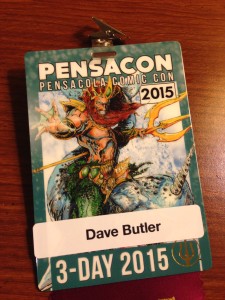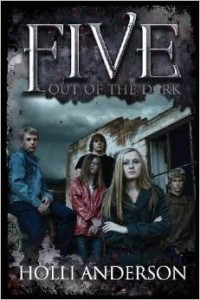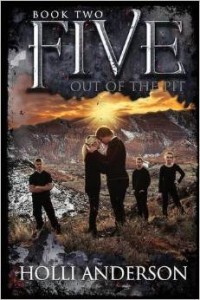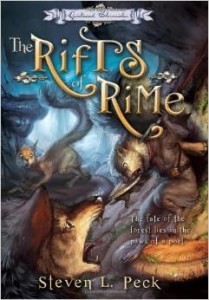“It’s the basic question you must always know how to answer: What are we offering customers, why is it better than the other options available to them, and how will we make money from it?”
— Ram Charan, Know-How
“It’s the basic question you must always know how to answer: What are we offering customers, why is it better than the other options available to them, and how will we make money from it?”
— Ram Charan, Know-How
Astronomer-mythologist John Lundwall shares Native American tales that tie into initiation ritual, astronomy, and storytelling.
Utah Geek Magazine Issue 4 is available now. Download it here now in .pdf, and turn to page 13 to check out UGeek’s profile of me, from my chat with them at Life, the Universe, and Everything in February:
I just finished an experiment.
A few years ago, several writer friends and I went to a remote cabin in southern Utah (remote in the sense in which all of Boulder, Utah is remote) and wrote. We were all quite productive, and vowed to repeat the experience, but then life happened and the cabin became unavailable and we haven’t gone back since.
This year, this past week, I invited roughly the same set of guys to have a week-long writing retreat, at my house in Utah Valley. This could only work because my long-suffering family, and especially my business partner and fellow writer Emily, were willing to vacate the house. Emily took the kids to a hotel, and writers came in: E.J. Patten, Chris Husberg, Steve Diamond, and for one glorious night at the end of the week, Robison Wells.
Every day we wrote from dawn until well after dark, chatting around meals or as we paced about the house thinking out our respective plotting points. We shared dinner duties, and ate well: pasta and pizza and crepes and steak. And in the evenings, we played boardgames: Warrior Knights, Shadows of Brimstone, Taluva, Smash Up, Hey, That’s My Fish!
It’s been a great week. My word total is 43,000 for the week. All together, I think we hit around 140,000. That’s two mass market paperback novels, written in five days.
Not everyone can work this way. It took a group of writers with the ability to shut up, knuckle down, and crank out words. But it was a great success, and I’m already thinking about Retreat to the House on the Hill II.
 Last weekend I went to Pensacon, in Pensacola, Florida. This was exciting for me, because it was my first outing as a Wordfire Press author, with the WFP team and at the WFP table.
Last weekend I went to Pensacon, in Pensacola, Florida. This was exciting for me, because it was my first outing as a Wordfire Press author, with the WFP team and at the WFP table.
The team was Kevin J. Anderson, Peter J. Wacks, Alexi Vandenburg, Jody Lynn Nye, Dan Wells, Quincy J. Allen, Josh Vogt, Raphyel N. Jordan, David Boop, and Scott Eder. And me. You’ll notice that’s a lot of Js.
Some of us are published at other presses exclusively, some at WFP exclusively, and some at a combination. The Wordfire model is interesting and exciting, but I’m not really going to get much into it here. Suffice it to say we had a collective of authors, spinning off individuals and teams to present on panels, deal with media, and engage in street team operations, leaving all the while a core of friendly selling authors at the booth.
Here’s a great video shared by Josh on his website, by the way. In it, Peter, Quincy, Josh, David and I discuss Wordfire and writing. Well worth the half hour, if you’re interesting in the business and the vocation.
 Pensacola was really enthusiastic about the convention. The airport had a variety of signs welcoming attendees from the moment of their arrival.
Pensacola was really enthusiastic about the convention. The airport had a variety of signs welcoming attendees from the moment of their arrival.
(And since I was getting off the same plane as Nichelle Nichols, I felt pretty jazzed to be there.)
Leonard Nimoy passed during the con. I don’t have anything to say about that that hasn’t already been said, except that he was my favorite. We ate dinner as a team at an Irish / Country restaurant called Beef O’ Brady’s Friday night, and the first thing we all did was raise a glass to Mr. Nimoy. Live Long, and Prosper.
Here’s a glimpse of what the table looks like from the authors’ side. Spare copies, signing pens, hand disinfectant, Advil.
of what the table looks like from the authors’ side. Spare copies, signing pens, hand disinfectant, Advil.
So it was a weekend of selling. And listening to the other authors to learn their pitches, to better sell their books. Here are my three favorite pitches from the weekend, learned or invented.
“Hellhole is Napoleon in space. The leader of a failed rebellion is exiled to a planet where is supposed to die. Instead he thrives, gathers malcontents around him, and launches the revolution again.”
“Mythology 101 is about a young man who goes to college and spearheads the campaign to demolish the old, antiquated library. After his campaign is successful, he discovers elves living in the library basement.”
“Rock Band Fights Evil is the Chronicles of Narnia, if the Pevensey children were a bunch of foul-mouthed, gun-toting, damned rock and rollers.”
This weekend I’m off to Pensacon, in Pensacola, Fla. I don’t have a schedule yet, so I’ll just have to promise you a report out as to what I’ve done.
This is a landmark trip for me, as I’m no longer self-published-Dave-at-Dave’s-table, but Wordfire Press-author-Dave-at-the-Wordfire-booth. Pretty excited about that.
 The high concept pitch for these books is as easy as it is exciting: Five is Harry Potter meets Twilight, set against the mythos of the Dresden Files.
The high concept pitch for these books is as easy as it is exciting: Five is Harry Potter meets Twilight, set against the mythos of the Dresden Files.
Paige is a preacher’s daughter who accidentally discovers her own magical powers when rescuing her dog from a sadistic pack of boys. When her father finds out, he doesn’t take it well, and rather than be strong-armed off to some de-magicization camp (shades of gay-straight conversion therapy?), she knocks the church thugs off their feet with her power and heads to Seattle.
In Seattle, Paige finds herself in the Underground. She teams up with Johnathan, a young man with similar gifts to her own, and under Johnathan’s leadership, a group of five magically gifted teens coalesces. They study and develop their own arts, while at the same time looking for opportunities to fight evil — interfering with Goblin robberies, investigating rashes of suicides, stopping a faerie from replacing a human baby with a changeling, and so on.
 In the course of saving this last-mentioned human baby, Johnathan gets bitten by a changeling. Although the initial effects fade, Johnathan begins transforming into a dangerous beast with the changing moon. Which means that Paige has to worry about saving him as well as defeating the group’s real enemy — a Warlock intent on raising a dark army to conquer and rule.
In the course of saving this last-mentioned human baby, Johnathan gets bitten by a changeling. Although the initial effects fade, Johnathan begins transforming into a dangerous beast with the changing moon. Which means that Paige has to worry about saving him as well as defeating the group’s real enemy — a Warlock intent on raising a dark army to conquer and rule.
Five Out of the Dark is the first of a series. Book two, Five Out of the Pit, is available now, and I understand that book three is on the way. The adventure of Harry Potter, the romance of Twilight, and the complex world of Harry Dresden, wrapped into quick YA reads — what more could you want?
 Warrior squirrels. Uncertain borders. Scholars studying the language of ants. Officialdom rewriting ancient scripture to conform to new doctrine. Blasphemous wolves. Squirrel poetics versus marmot rhetoric, and the value of structure. A murdered prophet. An insecure poet. An ambitious leader, anxious to rise and rule. A loyal warrior, exiled for honesty. Useless extra body parts. Interspecies enmity.
Warrior squirrels. Uncertain borders. Scholars studying the language of ants. Officialdom rewriting ancient scripture to conform to new doctrine. Blasphemous wolves. Squirrel poetics versus marmot rhetoric, and the value of structure. A murdered prophet. An insecure poet. An ambitious leader, anxious to rise and rule. A loyal warrior, exiled for honesty. Useless extra body parts. Interspecies enmity.
Steve Peck, biologist, poet, and sometimes disciple of Mervyn Peake, weaves an intricate and noble story in The Rifts of Rime. His tale is solidly rooted both in the tradition of epic-poetic fantasy (The Lord of the Rings) and in animal fable (Watership Down). My children loved it, and so did I.
Sadly, The Rifts of Rime embodies in its publication a warning parable about the risks of publishing with a small publisher. After patchy support at best for the first tale, this excellent book’s sequels have not been picked up by the publisher. So the bad news is that the further adventures of Pinecone, Zanch, and the others (or their descendants) is not now available for general consumption. The good news is that Peck is a free agent, the manuscript exists, and I have confidence that sooner or later, whether publicly packaged as sequels to The Rifts of Rime or not, we’ll have another chance to peek inside this charming magical world.